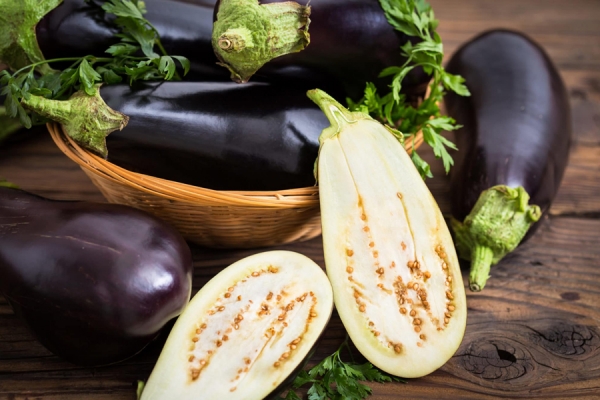Eggplant
How eggplants help regulate weight and take care of heart health Eggplants are one of the most valued vegetables in cooking because of their rich nutritional value. Not only do they add flavor and texture to a variety of dishes, but they also offer a host of health benefits. Here are some of the reasons why you should eat eggplants more often. Rich in nutrients Eggplants are a source of many vitamins and minerals. They contain vitamins such as vitamin C, K, B6 and folic acid, as well as minerals including potassium and magnesium. These nutrients play a key role in maintaining the health of the body and support various metabolic processes. High in antioxidants Eggplants are rich in antioxidants, especially nasunin, a type of anthocyanin found in the skin of the eggplant. Antioxidants help to neutralize free radicals in the body, which can cause cellular damage and contribute to the development of chronic diseases. They support heart health Eating eggplants can help improve heart health. Eggplants contain fiber, potassium, vitamin C and vitamin B6, which are important for maintaining the cardiovascular system. Fiber helps lower cholesterol levels, and potassium supports healthy blood pressure by reducing the effects of sodium on the body. They help control weight Eggplants are low in calories and high in water and fiber, making them an excellent choice for people who want to control their weight. Fiber promotes satiety, which can help reduce overall calorie intake for the day. They improve cognitive function Studies show that eggplants can contribute to maintaining brain function and reducing the risk of cognitive disorders. Nasunin protects lipids in brain cells, thus supporting brain health and reducing the risk of degenerative diseases. They support bone health Eggplants contain a number of minerals that are important for bone health, including calcium, magnesium and phosphorus. Regular consumption of these vegetables can help strengthen bones and reduce the risk of osteoporosis and other bone-related diseases. Eggplants are an extremely versatile vegetable in cooking. They can be baked, fried, grilled, stewed and even used raw in salads.
